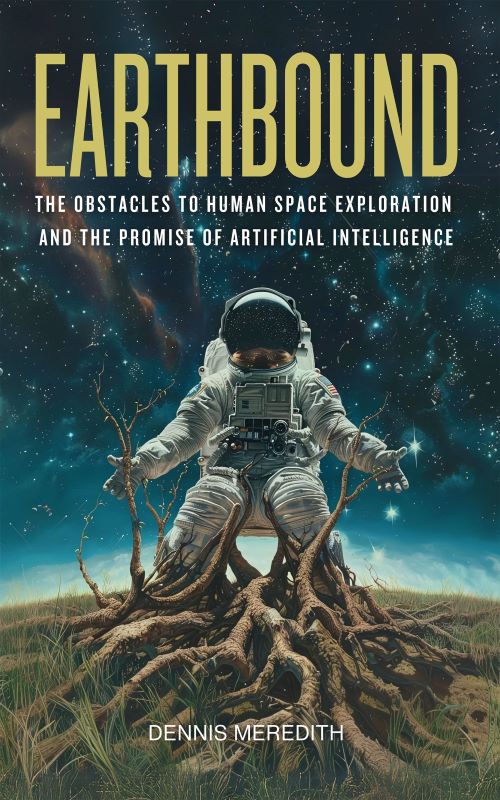Humans cannot survive in deep space, says new book
The overwhelming hazards of radiation, weightlessness, disease, toxic chemicals, and psychological trauma mean that humans cannot survive in deep space beyond the protection of Earth orbit, according to the new book Earthbound: The Obstacles to Human Space Exploration and the Promise of Artificial Intelligence.
The book cites a multitude of scientific studies on organisms from cells to humans revealing the profound biological, medical, and psychological impacts of the deep-space environment. NASA itself has recognized the severe, unsolved “Red Risks” of deep-space travel, including radiation health impacts, vision problems, cognitive decline, and inadequate food and nutrition. And, researchers have conceded that they cannot reliably estimate the medical risk of deep-space exploration missions.

“While this book might be damned for crushing the dream of human deep-space travel, when the dream turns out to be a nightmare, it should be exposed as such,” wrote author and veteran science writer Dennis Meredith. “Ultimately, reality will kill the human space exploration program. This book reveals the inevitability of its demise.”
Instead of a human space program, Earthbound advocates that deep-space exploration be mounted by neuronauts—artificially intelligent space probes collaborating with scientists. They could explore exotic realms from Martian caves to Europa’s oceans to Venus’s murky, superhot atmosphere. The data they gather could be used to create a Virtual Cosmos that all of humanity could explore, experiencing the wonders of the solar system.
“The book aims to persuade decision-makers to avoid a massively expensive—and in the end inevitably tragic—human deep-space program,” wrote Meredith. “In its place I advocate a sensible space program based on the more realistic, productive, and cost-effective use of sophisticated, artificially intelligent robotic space probes as the technological and sensory extensions of humans.”
The research detailed in Earthbound reveals that deep-space travel is a “serial killer,” as are lunar and Mars missions. That is, they are like the serial circuits of old-time Christmas tree lights, in which the loss of one defective bulb extinguished the entire string of lights. Similarly, in deep space a single medical catastrophe amid untold possibilities could end in astronauts’ death or disability. Any organ—heart, lungs, immune system, brain, or eyes—could fail. And the severe limits on medical capabilities in deep space would prevent treatment.
Likewise, in deep space, the loss of one spacecraft system—oxygen supply, temperature control, food, water, or radiation protection—means catastrophic failure, ending in death. The research also reveals that deep space is a "synergistic killer," in that these hazards could interact in ways that increase their lethality.
Earthbound explores the political pressures driving the human deep-space program, including advocacy by NASA and cosmic cheerleaders—self-serving politicians, profit-seeking aerospace corporations, naïve space travel enthusiasts, and billionaires with space visions. They ignore the medical, economic, technological, and political obstacles that Earthbound reveals.
Of such advocates’ visions, Meredith wrote, “There is a saying, ‘to a man with a hammer, everything looks like a nail.’ To [Elon] Musk and his fellow rocket engineers, everything looks like a rocket launch. To them, deep-space exploration and lunar and Mars colonization are only engineering problems, presenting no psychological or medical hazards of radiation, microgravity, and environmental toxins.”
“In the end, Musk and his fellow entrepreneurs are effective cosmic cheerleaders who advocate for a human deep-space program with little regard for its medical, political, and economic realities,” wrote Meredith.
The book explains how science fiction serves as propaganda, giving a false sense that human deep-space travel is feasible. In reality there is no magical gravity, instant food synthesis, radiation protection, or infinite fuel, as depicted in science fiction from Star Wars to Star Trek to The Martian.
Earthbound also documents the billions of dollars wasted on past and present human space programs. And it questions whether human deep-space travel is ethical, given its unavoidable hazards.